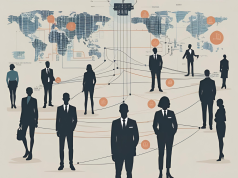In the heart of the bustling city, the narrative of the ‘steady job’ is being rewritten. The gig economy is a mosaic of freelancers, contract workers, and part-time hustlers, painting a new picture of work that defies the traditional 9-to-5 paradigm. This labor revolution has woven itself into the fabric of our society, promising autonomy and flexibility, but it also frays the edges of job security and workers’ rights, revealing stark contrasts between freedom and vulnerability.
The rise of platforms like Uber, TaskRabbit, and Fiverr has catalyzed this shift, with their siren songs of being one’s own boss and sculpting a personalized work-life balance. Yet, the melody often turns dissonant as the realities of unpredictability and instability echo louder for many. As an experienced Workplace Accessibility Expert, I have witnessed firsthand the triumphs and trials of this new frontier.
## Personal Stories of Gig Workers
Take Ellie, a graphic designer who toggles between projects with the agility of a digital nomad. Her days are kaleidoscopic — vibrant with variety but also tinged with the anxiety of the next paycheck. Or consider James, whose ride-sharing gigs underpin his household yet shuffle his family time to the unpredictable rhythms of peak demand hours.
## Expert Insights on Work-Life Balance
The gig economy crafts an intricate dance of autonomy and hustle. Dr. Sarah Johnson, a work-life balance researcher, notes how ‘the fluidity of gig work can be a double-edged sword—empowering for some, isolating and stressful for others.’ As traditional safety nets like health insurance and retirement plans become patchwork, gig workers often find themselves on a tightrope without a net.
## Evolving Legal Landscape
Legislative bodies and courts are scrambling to redefine labor laws to encapsulate this gig workforce. Recent rulings, such as California’s Proposition 22, have sparked contentious debates on the classification of gig workers and the extent of benefits they deserve.
## Is the Gig Economy Liberating or Exploitative?
A critical question simmers at the heart of the gig economy—does it unlock professional liberation or unleash a new strain of worker exploitation? As we observe the gig landscape, we must ponder whether flexibility is merely a guise for relinquishing employer responsibilities or a genuine path to a more balanced life.
## Ethical Integration and Worker Protections
Companies have a pivotal role in shaping the ethical canvas of gig work. It is imperative that they architect equitable frameworks that support gig workers, ensuring fair pay, opportunity for growth, and essential benefits.
In conclusion, as the gig economy unfurls its sails, the waters of work-life balance grow ever more turbulent. For some, the horizon is ripe with promise; for others, it looms with uncertainty. It is incumbent upon all industry stakeholders—business leaders, policymakers, and workers themselves—to navigate this frontier with foresight, fortitude, and an unyielding commitment to the equitable treatment of every worker in the mosaic of the gig economy.




























